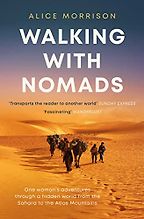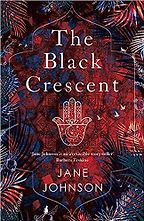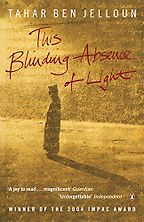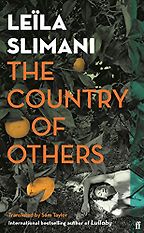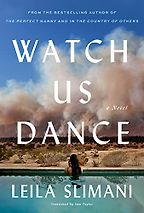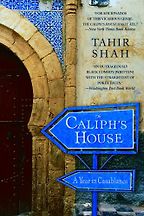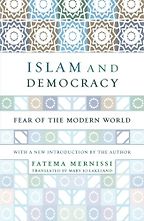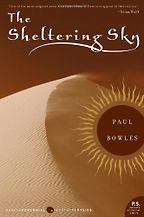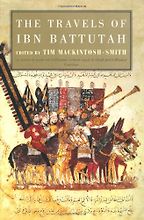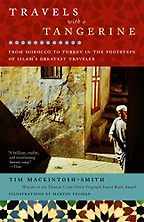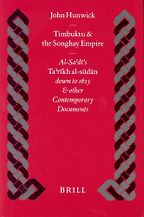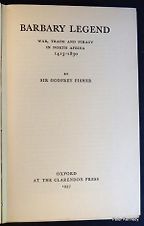Morocco
Last updated: August 09, 2023
Some books on aspects of the history and literature of Morocco, recommended in interviews on a range of subjects. Many books about Morocco aren't translated into English so some of the books on history and current affairs can appear a little dated. However, Moroccan-French novelist Leïla Slimani—who won France's prestigious Prix Goncourt prize in 2016—has had several of her books translated, so is one place to start if you're looking for contemporary novels that also give a sense of Morocco's recent past.
Walking with Nomads
by Alice Morrison
☆ Shortlisted for the 2023 Edward Stanford Travel Writing Awards Travel Book of the Year
The Scottish explorer and TV presenter Alice Morrison travels across Morocco, from the Sahara Desert to the Atlas Mountains, in the company of three Amazigh (once known as Berber) men and their camels. During her journeys, she encounters a lost city and dinosaur footprints, and does her best to avoid landmines, quicksand and poisonous snakes. She also encounters nomadic peoples travelling through this arid environment, who tell her about the challenges of life on the move, and the changes wrought by a warming climate.
The Black Crescent
by Jane Johnson
The Black Crescent by British novelist Jane Johnson is a lovely work of historical fiction that introduces you to the world of 1950s Morocco, at the time of the country's struggle for independence from France. The main character, Hamou Badi, is from a mountain village but ends up becoming a policeman and working in Casablanca. The author, Jane Johnson, has set a number of her novels in Morocco where she met her husband, Abdel Bakrim, and now lives for half the year (see below for the story of how that happened!). As well as being a good story, the book is a nice way of learning about Morocco's recent history alongside her.
This Blinding Absence of Light
by Tahar Ben Jelloun
🏆 Winner of the 2004 International IMPAC Dublin Literary Award
This Blinding Absence of Light by Moroccan novelist Tahar Ben Jelloun is based on a true story. It's about a prisoner who ends up in Tazmamart, a secret prison built in the Atlas Mountains after a failed coup against the then king, Hassan II, in 1972. Conditions were terrible at the prison and the men who ended up there spent nearly 20 years at Tazmamart while its existence was constantly denied.
The Country of Others
by Leïla Slimani
The Country of Others is the first book in Moroccan-French author Leïla Slimani's trilogy of novels based partly on her own family's story, now translated into English. It opens in 1945 as a French woman living in Alsace falls in love with a Moroccan serving in the French army. The couple move to Morocco, where they make their lives on a farm. The story takes us through Morocco's independence struggle from France to 1956, when the French protectorate of Morocco came to an end.
Watch Us Dance
by Leïla Slimani
Watch Us Dance is the second novel in Moroccan-French novelist Leïla Slimani's multigenerational family trilogy. The novel opens in 1968 and follows the daughter, Aïcha, as she heads home to Morocco after studying in France. The first book in the trilogy is The Country of Others.
“The Caliph’s House is wonderful because its author, Tahir Shah, is just this guy you want to be friends with, to hang out with and follow around. The book’s about this house he bought in Morocco. He’d decided to move with his family from England, on a whim almost, in an effort to lead a more interesting life, and they buy this massive palace of a house. But it’s in ruins and the story’s just his efforts to get it renovated, painted and livable: a massive undertaking. And while doing this he gets to find out how businesses are run in Morocco, and the very different ways in which work gets done.” Read more...
The best books on Foreign Memoirs
Jennifer Steil, Foreign Correspondent
“The great thing about Moroccan food is that you can go off and do your own thing once you’ve learned a bit about it. You can make up your own versions because the spices and colours are so enchanting….With Moroccan food, I always go back to Robert Carrier. There’s a very beautiful illustrated edition of the book. You turn over a couple of pages and you can’t wait to start cooking. You feel you’re going to be able to conjure up all this magic and colour from it.” Read more...
The best books on Mediterranean Cooking
Diane Seed, Cooks & Food Writer
“Fatima Mernissi is a Moroccan feminist and produced one of the first books on feminism within an Arab Middle East and in a Muslim context. She also wrote a pioneering book-length text of Islamic feminism. In Islam and Democracy Mernissi is taking up Islamic arguments for claiming full citizenship, democracy, equality and justice. Mernissi is bringing together secular and religious arguments, and among the things she gives importance to is the need to reform Muslim personal status law as part of achieving democracy.” Read more...
The best books on Islam and Feminism
Margot Badran, Historian
“It centres on an American couple travelling to Morocco and opens with the crazy markets and tearooms, the hubble-bubble smoking in the towns, which are a vivid, almost frightening glimpse of another world. The travellers are enthusiastic but their ignorance makes them vulnerable; they have no way of being usefully watchful in this alien terrain. As they journey south the heat and disorientation intensifies and the towns grow further and further apart, with wilderness sucking them into a chain of events they cannot control. As everything disintegrates around them we see the truth behind the veneer of civility. In the emptiness they are faced with themselves and, as the marriage dissolves, the danger of travel becomes a nightmare – beyond the harsh terrain, disease and physical toll of desert travel, tragedy and madness wait. In a way, all desert books are about travelling within yourself, and not being entirely in control. That surrender to the kindness of strangers is common to everything I’ve ever read about the desert, too. You surrender everything because the desert will take it from you anyway. And you have to learn a new kind of watchfulness.” Read more...
The best books on Desert Nations
Jo Tatchell, Journalist
“I couldn’t not include him. His editor Ibn Juzayy says towards the end of the book that Ibn Battutah is “the traveller of the Arabs and if anyone says he is a traveller of this ummah (Islamic community), he would not be wrong”. That actually stands today. In a sense he hasn’t been bettered since that time (the 14th century). The complete diversity of the Muslim world was put on the axis of a book by Ibn Battutah. Nobody afterwards could really do better. He is the traveller of the Islamic world.” Read more...
Books about Travelling in the Muslim World
Tim Mackintosh-Smith, Travel Writer
“Mackintosh-Smith follows Ibn Battutah’s journey, retracing his steps from Morocco to Egypt, Syria to Oman, and Anatolia to Constantinople. He sails in a dhow across the Arabian Sea and travels to Delhi, then on to the Maldives and the fabled Adam’s Peak in Sri Lanka. He describes his own experiences beautifully but also provides us with extracts from Ibn Battutah. The result: you see India from the 14th-century perspective of Ibn Battutah’s adventures overlaid with an account of an emerging 21st-century superpower. Brilliant juxtaposition.” Read more...
The best books on Travel in the Muslim World
Ziauddin Sardar, Theologians & Historians of Religion
Timbuktu and the Songhay Empire: Al-Sa'di's Ta'rikh Al-Sudan down to 1613 and Other Contemporary Documents
by John Hunwick
There is political history embedded in Tarikh al-Sudan. But then it also moves beyond the moment of the Moroccan conquest of Songhai in 1591, and it moves into the post-1591 period. It moves into a discussion of the early Moroccan occupation of Timbuktu and this period of the Arma, which is a reference to the fact that the Moroccans will come into Timbuktu and conquer largely because they have rifles.
“Fisher’s book is a wonderful corrective to the prejudice we have about the Barbary Coast pirates. It almost goes too far. It suggests that the West has approached the idea of North African pirates with a prejudiced eye, because they are Islamic. Fisher says: why don’t we look at how the West related to North Africa and particularly the four Barbary states. These were Morocco and the three Ottoman states of North Africa – Algiers, Tunisia and what we would call Libya.” Read more...
Adrian Tinniswood, Historian
